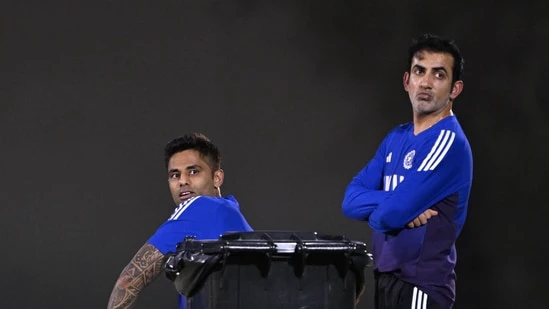Amid the rising boycott campaign ahead of the Group A Asia Cup tie between India and Pakistan, the Board of Control for Cricket in India (BCCI) secretary Devajit Saikia explained the decision to go ahead with the contest, saying the decision was taken keeping the policy issued by the central government in mind.
Social media is abuzz with the Indian cricket board being called out for going ahead with the match against the arch-rivals despite the current mood of the country in the aftermath of the Pahalgam terror attack and Operation Sindoor.
The top official of the BCCI stated that there was no noise and that India had to play against Pakistan in the Asia Cup, considering it is a multilateral event. He also confirmed that had India boycotted the match against Pakistan, then the country’s dreams of hosting the Olympics and Commonwealth Games in the future would have taken a hit.
Earlier this year, 26 innocent lives were lost during the Pahalgam terror attack. India then launched Operation Sindoor, hitting the terrorist camps in Pakistan and Pakistan-occupied Kashmir (PoK). The Indian government banned several YouTube handles from across the border, and it was believed that cricketing ties would also take a hit.
However, once the Asia Cup schedule came out, fans directed their anger at the BCCI, questioning the need to go ahead with the match against Pakistan. However, Saikia has now stated that an international ban cannot be risked, hence the contest will indeed go ahead on Sunday.
“We have decided to participate in the Asia Cup because it is a multinational competition. It is just like an Olympic, any FIFA tournament, AFC tournament, or International Athletics Tournament. So we cannot boycott the multinational tournament because if we boycott this tournament, that will bring a lot of negativity for all our future endeavours of hosting any multinational tournament in the country,” Saikia told Hindustan Times.
“So therefore, as it is a multinational competition, we are participating because we do not have a direct call or direct decision whether to play or not to play. Had it been a bilateral tournament, we could have always said that we would not play against any hostile country. And so far as Pakistan is concerned, we are not playing any bilateral tournament since 2012-13 onwards,” he added.
‘Pakistan not friendly with us’
The BCCI secretary went on to state that making a unilateral decision is easy when it comes to bilateral cricket, but things get a little more complicated when multilateral events are involved.
Speaking of the Asia Cup, India and Pakistan could play against each other on two more occasions after the September 14 tie, provided the two teams make it to the Super 4s and the final.
“We have decided to take a call that Pakistan is not friendly with us and they are always acting against our country. Therefore, we decided not to play as BCCI against PCB. But when it is an international tournament like last year’s T20 tournament in the West Indies and the USA, or any other tournament or maybe in February, also, there will be the ICC T20 World Cup or the present ICC tournament or the Champions Trophy, we are playing it because in those tournaments we do not have a direct call, we have to play. Otherwise, the whole tournament will get diluted,” he said.
“And if we do that, then all other international associations will take action against the Indian Sports Federation. Suppose India is not participating in an AFC football tournament or a FIFA qualifying tournament or the Davis Cup, or the Thomas Cup, then in future, if we want to host a Commonwealth tournament in India or the Olympics in the 2030s, all these factors will take an adverse position for India to bid for those tournaments to be held in India. And if the Indian association is barred, suppose India decides not to play in an international athletics tournament, tomorrow the Indian Athletic Association will be barred or there will be fines,” he added.
Saikia stressed that the BCCI couldn’t have taken the risk of jeopardising the players’ careers, so the only option was to proceed with the match against Pakistan.
“As a result, our players will not be able to participate and compete in any international tournament. Therefore, considering all these aspects, the central government has laid down a guideline and a policy that, so far as bilateral tournament is concerned, India is not going to play against any hostile country. But so far as multinational, we will play,” he said.
“So we follow that guideline of the central government, and we are following it because it is in the interest of the game, whether it is cricket, football, athletics, boxing, badminton and the players involved in those games. If it is cricket also, we have to do it because it is being permitted under the present central government policy,” he added.
Saikia concluded by saying that he is confident of Team India’s victory in Sunday’s group stage of the Asia Cup. He wished Suryakumar Yadav and his team the best of luck in the crucial encounter.
“Whatever noise is being made regarding tomorrow’s match, I only pray that India performs very well in tomorrow’s match. We have to be the winner not only in the air or on the borders but also on the cricket ground and the cricket pitch.
